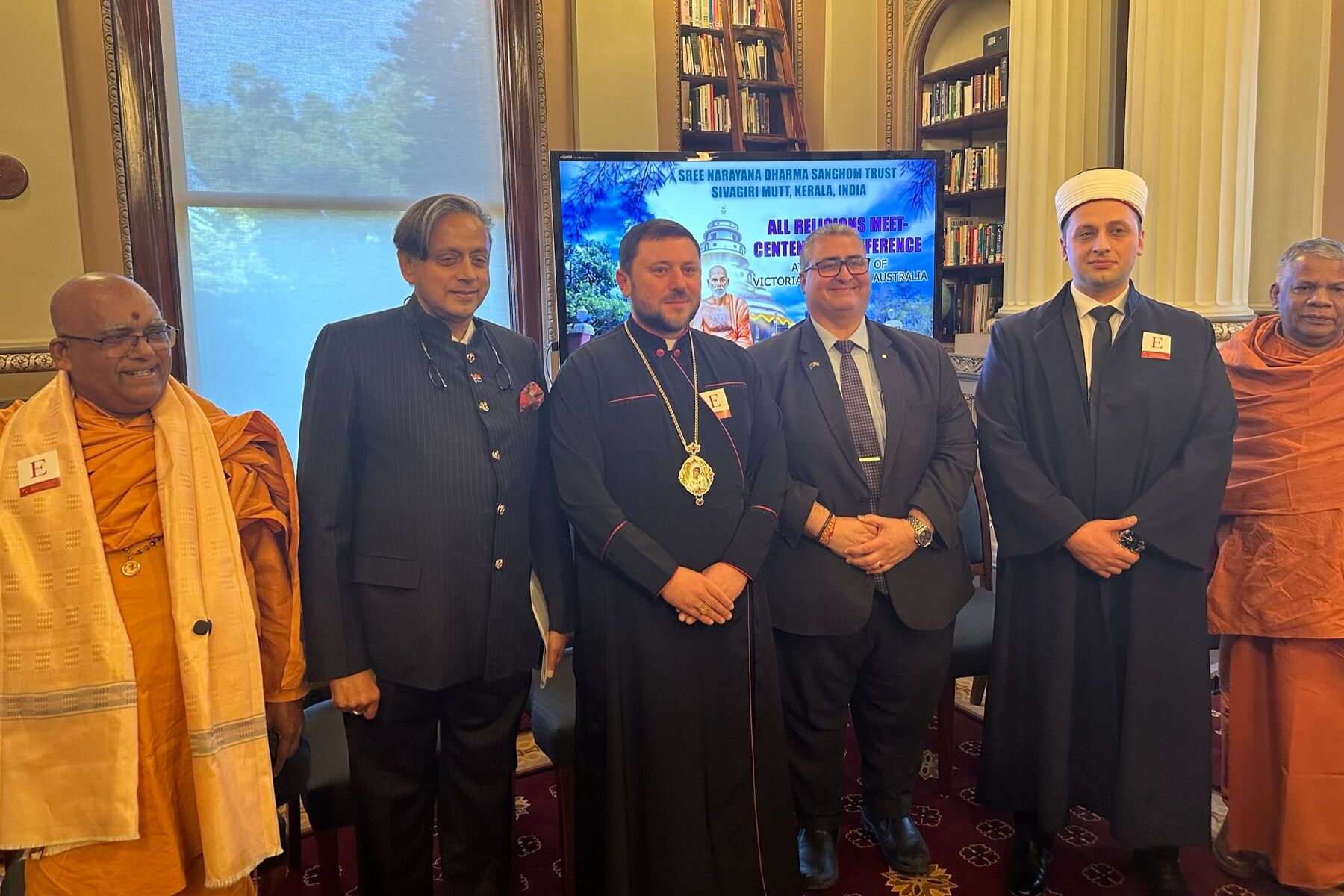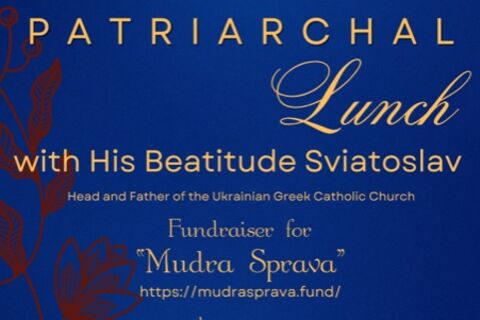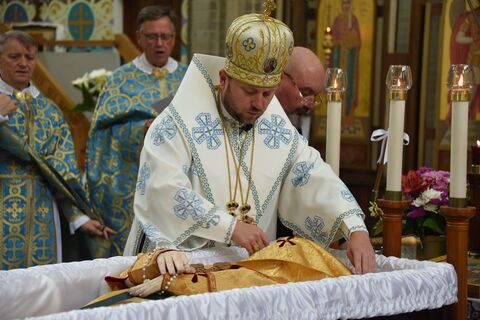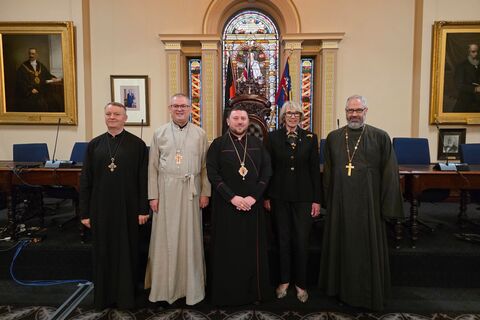Address by His Eminence Mykola Cardinal Bychok at the Centenary Celebrations of the First All Religions Conference in the Parliament of Victoria
October 15, 2025
On October 14, His Eminence Mykola Cardinal Bychok, Eparch of Melbourne, participated in the Centenary Celebrations of the First All Religions Conference, which took place in the Parliament of Victoria. This anniversary marks an important event in the history of interreligious dialogue, which began in 1924. The event brought together representatives of various religious communities and political figures and provided an opportunity for mutual witness to peace, unity, and cooperation.

Parliament of Victoria
14 October 2025
The Honourable the Premier of Victoria, Honourable Members of Parliament, distinguished religious and community leaders, dear friends,
It is a great honour to stand before you this evening in this noble house — a place where the voice of the people is heard — as we mark the Centenary of the “All Religions Conference”.
This evening unites voices of faith, wisdom, and fellowship — voices that together radiate harmony across our cultures and traditions. Here, beneath one roof, we affirm a truth that transcends every creed: that we belong to one human family, bound together by the divine spark in each soul.
The theme of unity in diversity speaks deeply to the heart of the Catholic tradition. The Second Vatican Council’s declaration Nostra Aetate reminds us that the Church “rejects nothing that is true and holy” in other religions and urges all believers to engage in dialogue and collaboration for the sake of peace and the common good.
Our differences, far from dividing us, reveal the beauty and creativity of the God who made us. Unity does not mean uniformity; harmony does not erase individuality. Just as the colours of a stained-glass window only reveal their beauty when touched by the light, so too humanity’s spiritual traditions shine most brightly when illuminated by mutual respect and understanding.
In an age where division and suspicion can spread faster than truth, we must be deliberate in building bridges — not walls. Interfaith harmony begins when we choose to see not a stranger, but a neighbour; not a rival, but a fellow seeker of truth.
True dialogue begins not with the desire to convince, but with the humility to listen. It is, as Pope Francis often reminds us, “a patient effort of listening, understanding, and walking together.” Dialogue is not weakness — it is the courage to enter the sacred space of another person’s experience with reverence.
In our divided world, the need for dialogue and reconciliation has never been greater. We see conflicts born of fear, of wounded memory, and of misused religion. But we also see signs of hope — communities reaching across old boundaries to heal, to serve, and to forgive. Reconciliation is not an abstract ideal; it is the daily work of peacemakers. It is the quiet conversation that mends trust, the shared prayer that softens hearts, the joint act of service that restores dignity.
Our world today cries out for compassionate leadership — leadership rooted not in dominance, but in service; not in rhetoric, but in integrity. The Scriptures remind us: “Blessed are the peacemakers, for they shall be called children of God.” True leadership, in any faith or government, must begin from this beatitude — from a heart willing to serve the common good.
In a time when political, economic, and social tensions seem to fracture societies, we must remind ourselves that peace is built not in treaties alone, but in hearts that are transformed by compassion. Pope Francis teaches that peace “is not merely the absence of war, but the tireless commitment to recognize the dignity of others.” Here in Victoria — a state enriched by so many cultures and creeds — compassionate leadership means nurturing a society where every faith can flourish, where every person is free to express belief, and where conscience is honoured.
We live in an age of extraordinary progress and yet deep anxiety — an age of global connection and local isolation, of material abundance and moral uncertainty. In such times, humanity looks again to the wisdom of its spiritual traditions for guidance and hope.
Religion, when faithful to its essence, is not a source of division but of healing. It reminds us that we are more than consumers or competitors; we are brothers and sisters, called to love and serve one another. The Catholic Church affirms that religious freedom — the right of every person to seek and express the truth — is a cornerstone of human dignity. When religion is free, it contributes to the moral and social health of a nation. When it is silenced, societies lose their soul.
And let us be clear: violence, in the name of religion or ideology, is never the answer. Every act of violence is a denial of God’s image in another. The way of faith is always the way of peace. As followers of Christ, we believe that evil is overcome not by force, but by love; not by domination, but by forgiveness. This is the spiritual response the world most needs today — compassion that is active, forgiveness that is courageous, and hope that endures.
Dear friends, as we commemorate one hundred years since the first All Religions Conference, we celebrate not only a historical milestone but a living vision — a vision of humanity reconciled in love.
Let us continue to walk together as fellow pilgrims on the path of peace. Let our dialogue be honest, our service be generous, and our hearts be open.
May the Almighty God, the God of all creation, bless our efforts to build a world where unity blossoms in diversity and where peace is the inheritance of every child.
Thank you, and may peace be with you all.


